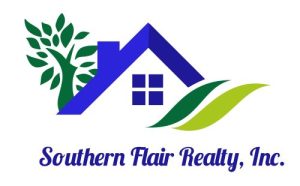Pricing your home correctly is one of the most critical factors in selling quickly and for top dollar. However, setting the wrong price—especially one that’s too high—can lead to prolonged market time, fewer offers, and ultimately, a lower final sale price.
If your home isn’t getting the attention you expected, you may need to reconsider your pricing strategy. Here are 12 key signs your home might be overpriced and what you can do about it.
1. Your Listing Price Is Higher Than Comparable Homes
If your home is priced significantly above similar properties in your neighborhood, buyers will likely overlook it in favor of better-priced options.
2. Your Home’s Upgrades Don’t Justify the Price
Not all renovations or unique features guarantee a higher price. If buyers don’t see the value in your upgrades, they won’t be willing to pay extra.
3. Few or No Showings
If your home has been on the market for weeks without much interest, the asking price may be deterring potential buyers.
4. Open Houses Have Low Attendance
If buyers aren’t showing up to open houses, it’s a red flag that your home is not attracting attention due to its price.
5. Little to No Online Inquiries
A well-priced home generates engagement. If your listing isn’t getting online views or inquiries, it may be priced out of buyers’ search ranges.
6. Your Home Has Been on the Market Too Long
If your property has been listed much longer than the average time in your local market, it could be a sign that buyers are passing on it due to price.
7. No Offers After a Month on the Market
A competitively priced home typically receives offers within the first few weeks. If you’ve gone a month or more without any serious interest, it’s time to reevaluate.
8. You’re Only Receiving Lowball Offers
Buyers submitting offers far below your asking price may be signaling that your home is overpriced for the current market conditions.
9. Similar Homes Are Selling Quickly While Yours Sits Unsold
If comparable properties are selling while yours lingers on the market, it’s a clear sign that buyers perceive your price as too high.
10. Feedback From Showings Suggests Overpricing
If agents and potential buyers consistently comment that your home is overpriced, take it as a sign that an adjustment is needed.
11. The Listing Has Expired and Been Relisted Without a Price Change
Relisting without a significant adjustment often leads to the same result—no interest. Pricing competitively from the start is key.
12. Appraisals Come in Below the Asking Price
If buyers’ lenders are receiving appraisals lower than your asking price, it can derail deals and indicate that the home is overvalued.
What to Do If Your Home Is Overpriced
Recognizing these signs is the first step toward making a successful sale. If you identify with several of these points, it’s time to adjust your strategy.
- Work with a real estate professional to analyze recent sales and determine a competitive price.
- Consider a price reduction to attract more buyers and increase interest in your home.
- Be realistic about market conditions and buyer expectations to position your home competitively.
A well-priced home sells faster and often secures a better final sale price. Don’t let an inflated price hold back your sale—stay informed, be flexible, and set your home up for success!
Thinking about selling your home? Contact me for a pre-listing consultation to discuss pricing strategies and market insights.

Leave a Reply